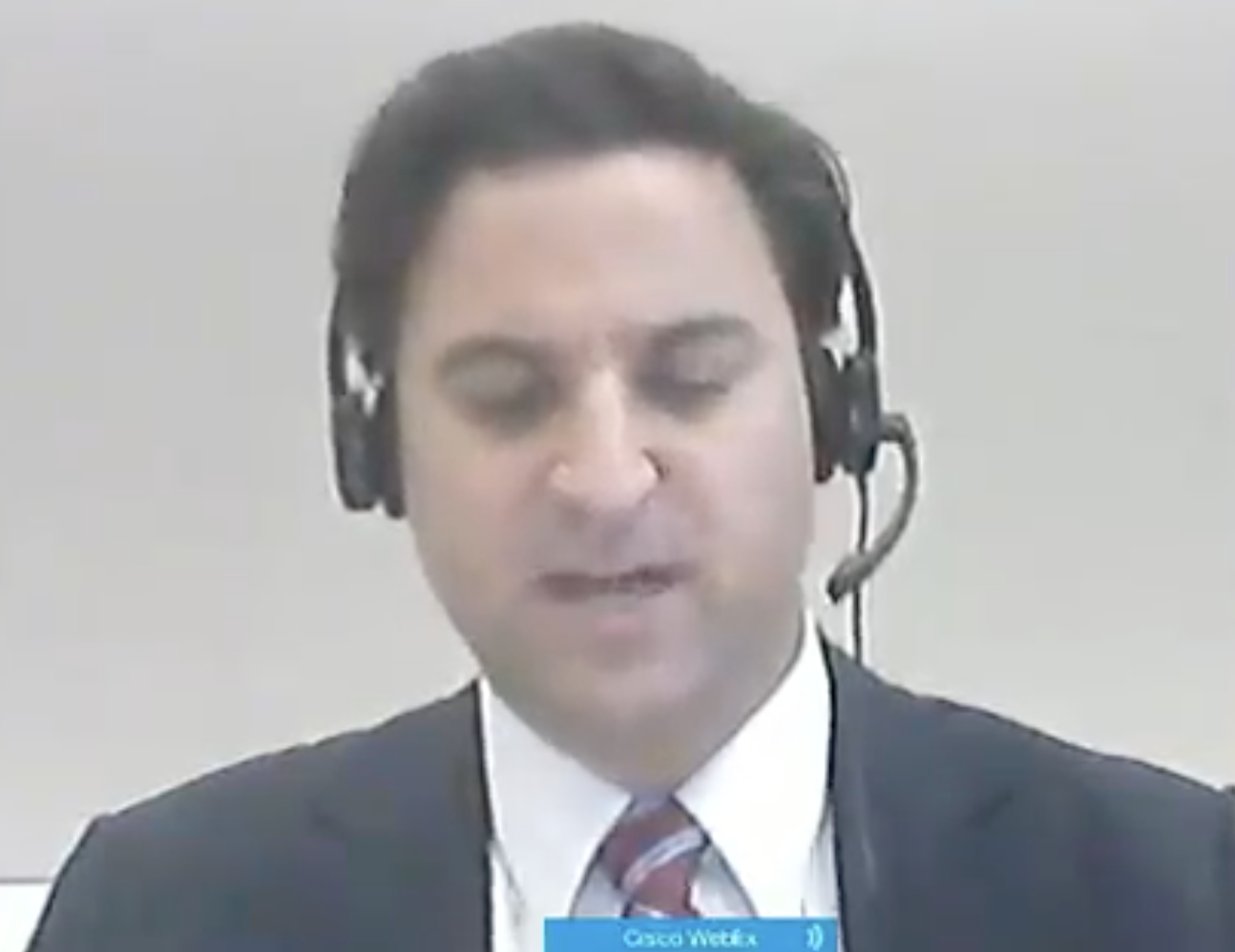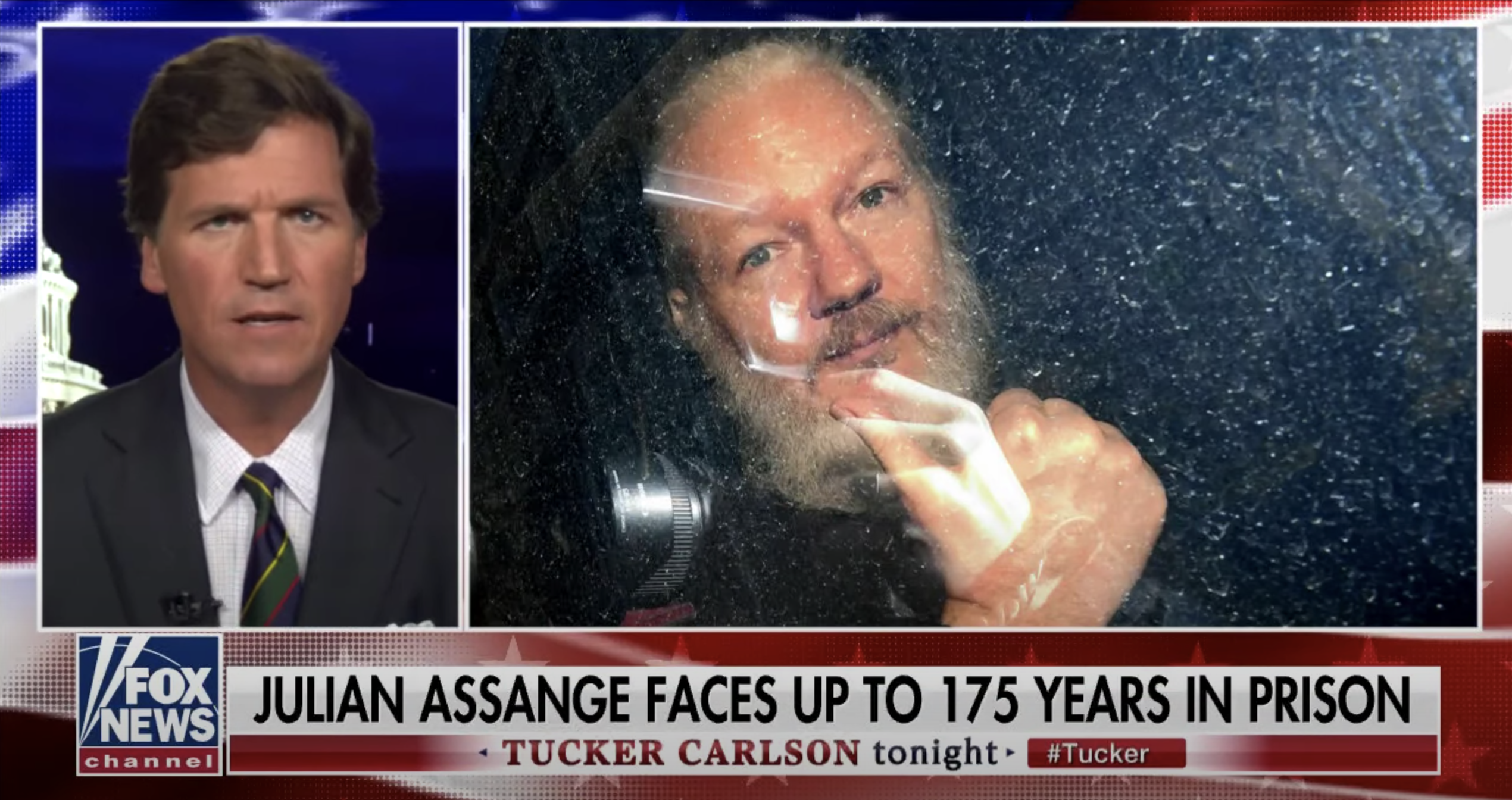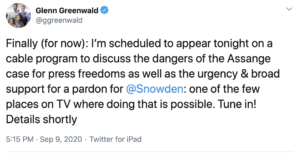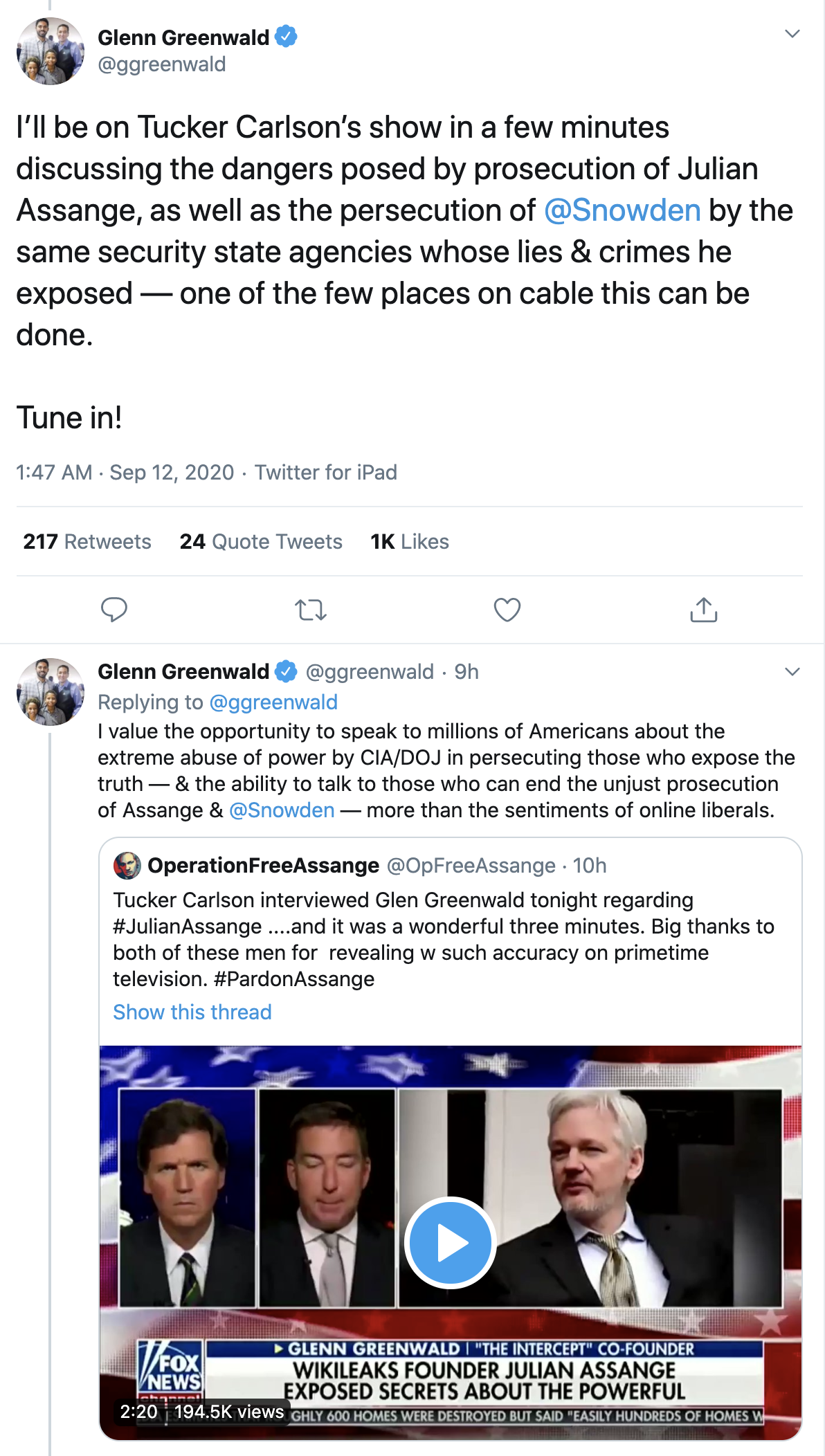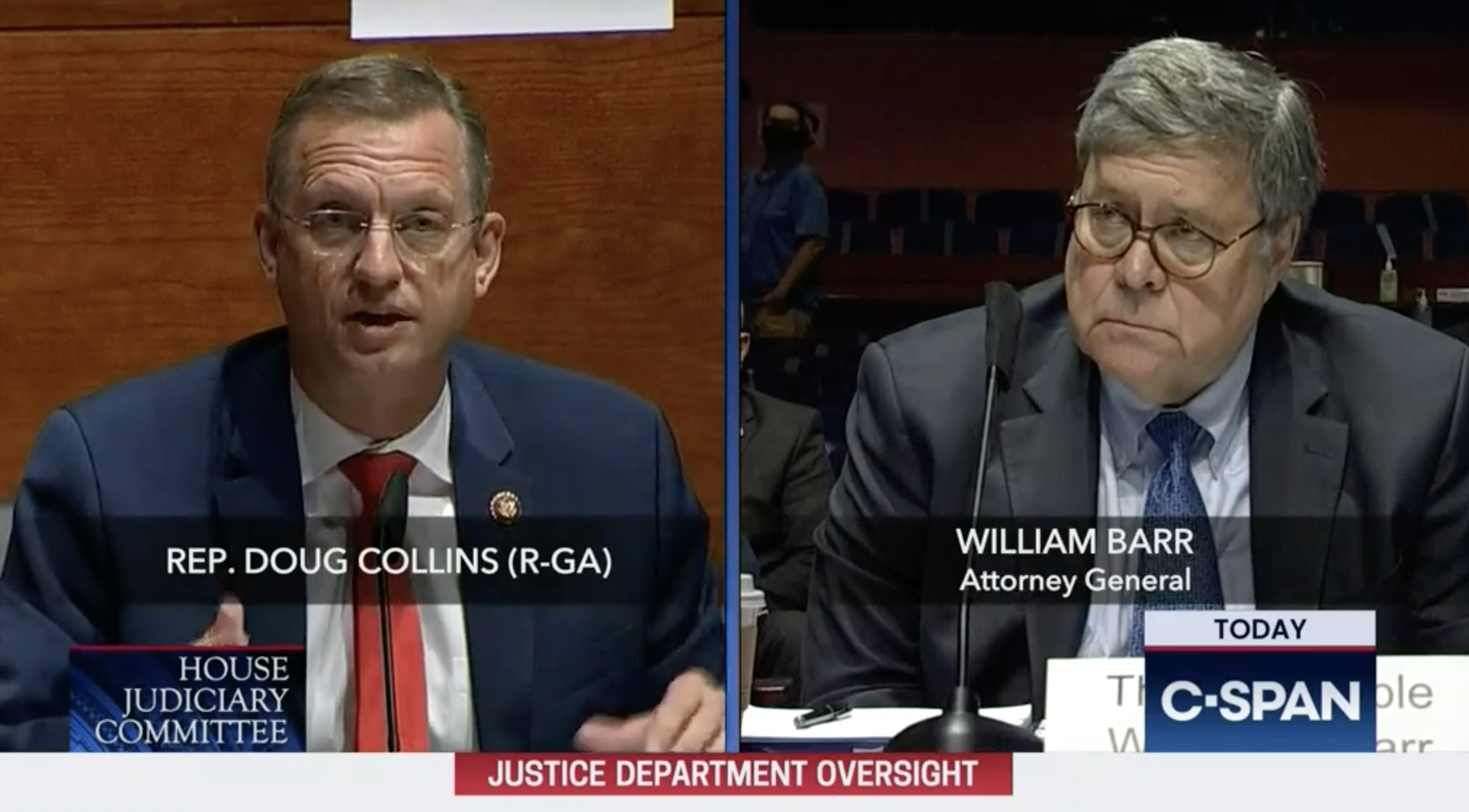When Judge Emmet Sullivan holds a hearing on DOJ’s motion to dismiss the Mike Flynn prosecution later this month, DOJ will likely refuse to answer any questions about why just Timothy Shea, Bill Barr’s lifelong flunky, signed the original motion to dismiss.
But even without raising that issue, retired Judge John Gleeson — acting as Sullivan’s amicus to oppose the motion — has amplified Shea’s role in his reply brief, submitted today.
He did so by noting that Shea’s argument is fundamentally incompatible with things DOJ claimed before Barr intervened (in filings arguing against Flynn’s Brady claims) and with things DOJ has claimed since (in a response brief signed by AUSA Jocelyn Ballantine).
Effectively, then, Gleeson has laid out that even DOJ believes DOJ lied in their motion to dismiss.
He does so, first of all, with materiality. Gleeson lays out that the government didn’t bother to defend the radical claims about materiality made in the Shea motion.
Although the Government attempts to respond to other arguments in my brief, it offers no response here. It does not claim I have misapprehended or misapplied the law. It never explains why one legal rule—the one set forth in its motion—applies to Flynn, while a different legal rule applies to everyone else. It never explains why its own lawyers erred so grievously in stating the law. It never explains why Flynn’s statements, in this setting, were not even capable of affecting the FBI’s general function. The Government’s silence on these crucial points is, by itself, sufficient to establish that its claims about materiality are pretextual.
Then, Gleeson argues that the government not only got the standard wrong, but misstated the evidence. To support it, he did what I’ve been clamoring for for months — he pointed to the government’s own claims about the materiality of Flynn’s lies (though he relies on a different and weaker filing than the government’s most aggressive statement on materiality, which had to he delayed twice to get senior DOJ review), noting that not that long ago the government argued aggressively that Flynn’s lies were material.
I have explained that the evidence demonstrating materiality here is so strong that the Government could satisfy an even tougher standard than the law requires—specifically, by demonstrating that Flynn’s statements had an actual effect on a specific FBI investigation. See ECF No. 225 at 41–42, 48–49. The Court need not take my word alone for this point. It can take the Government’s own word, as set forth in briefs submitted (unlike the Rule 48(a) motion) by the prosecutors who actually investigated this case, explaining that Flynn’s lies in fact affected the FBI’s investigation into contacts between the Trump campaign and the Russian government (a.k.a. “Crossfire Hurricane”). See ECF No. 132 at 10–11 (stating that Flynn’s “false statements to the FBI . . . were absolutely material”).
He also shows that the response brief — the one signed by Ballentine — offers no response on materiality itself but instead, “kick[s] up administrative dust.”
[T]he Government now abandons any discussion of the supposedly “critical”—but actually irrelevant—“predication threshold” that formed the backbone of its original motion. See ECF No. 198 at 16; see also id. at 2–5, 13–18. Instead, the Government refers vaguely to an irrelevant internal draft closing memorandum, “disagreement” about protocol, and other supposed “procedural irregularities,” ECF No. 227 at 2, 26–27, none of which is either particularly irregular or has any legal significance in proving materiality, see ECF No. 225 at 42–44. The Government seeks to conceal its retreat by kicking up administrative dust, but the bottom line is that it no longer stands by its own motion’s implausible reasoning.
Significantly, he mocks what is, in Billy Barr’s little mind, the real reason Flynn’s case should be dismissed: that many of the people who prosecuted Flynn have since been hounded out of government and are suing. Gleeson points out not just that two of them (Andrew McCabe and Lisa Page) are not witnesses to Flynn’s lies, but that in other places the government celebrates the experience of Peter Strzok and Joe Pientka (and had disclosed Strzok’s damning texts before Flynn pled guilty both times).
[T]he Government trots out a new explanation for its materiality rationale. The Government previously claimed to believe that the available evidence, taken at face value, showed Flynn’s statements to be immaterial. But it now says it has a different concern: that the witnesses it would rely upon to introduce the evidence might lack credibility with a jury. ECF No. 227 at 27–28. As this Court well knows, shifting explanations are classic red flags of pretext. See, e.g., Foster, 136 S. Ct. at 1751; Geleta v. Gray, 645 F.3d 408, 413 (D.C. Cir. 2011).
In any event, this claim makes no sense. The Government asserts without explanation that it “would need to prove its case” by calling as witnesses individuals from the FBI whose credibility could be impeached. ECF No. 227 at 27. But two of these “witnesses” were not present for Flynn’s false statements, so it is entirely unclear why their testimony would be required or even permitted (under evidentiary rules) in the Government’s case-in-chief. And more generally the Government’s professed credibility concerns are not plausible. They center on professed evidence of political bias by an interviewing agent that both the Government and Flynn have known about from the start of the case, see ECF No. 122 at 8–9; ECF No. 144 at 25– 34 (this Court discussing, at length, the history of the referenced text messages and why they do not cast doubt on Flynn’s guilty plea), and two pages after assailing the agents’ credibility, the Government does a back-flip to proclaim the very same agents “highly experienced investigators” whose assessment of the interview should be credited, see ECF No. 227 at 30. As I previously explained—without response from the Government—“[n]o competent lawyer thinks this way.” ECF No. 225 at 55.
To defeat the government’s claims that it would have a hard time proving Flynn’s lies were false, Gleeson points out a key disagreement Flynn has with the government. The government (in the form of prosecutor Ballantine, but others signed the brief too) maintains prosecutors did not commit any abuses.
[T]he Government affirmatively rejects Flynn’s own principal account of why his prior admissions of falsity should not be credited: namely, that prosecutors had threatened him with charges against his son. Compare ECF No. 160-23 at 8 ¶ 34 (Flynn Declaration describing “intense pressure,” including “a threat to indict my son Michael”), and id. at 11 ¶ 46 (“I allowed myself to succumb to the threats from the government to save my family . . . .”), with ECF No. 227 at 28 n.1 (“[T]he [G]overnment’s motion is not based on defendant Flynn’s broad allegations of prosecutorial misconduct. Flynn’s allegations are unfounded . . .”).
Given that Flynn repeatedly admitted to lying—and given that the Government is unwilling to accept Flynn’s claims about why those admissions were untrue—the Government struggles to offer a coherent account of why it doubts its ability to prove falsity.
Even Billy Barr, in sworn testimony before the House Judiciary Committee, said there were no Brady violations here (though he lied, under oath, about whether files had been withheld from Judge Sullivan).
Having shown how DOJ disagreed with itself on materiality and falsity, Gleeson then notes how DOJ invented a completely new reason — interests of justice — to dismiss the case.
The Government’s Rule 48(a) motion stated that “continued prosecution of Mr. Flynn would not serve the interests of justice.” ECF No. 198 at 12. It then elaborated on the reason: “the Government does not have a substantial federal interest in penalizing a defendant for a crime that it is not satisfied occurred and that it does not believe it can prove beyond a reasonable doubt.” Id. The Government thus asserted that the “interests of justice” would not be served by pursuing a case in which the Government doubts it could prove materiality or falsity. See id. at 12–20. No free-standing “interest of justice” policy reason is apparent in the Government’s motion.
But the Government now insists otherwise, asserting that it has always advanced a third “separate” and “alternative” reason for dismissal wholly unrelated to the difficulty of proving the elements of its case. ECF No. 227 at 23, 25–26. While this conclusion would come as a surprise to any careful reader of the Government’s motion, it would not surprise anyone familiar with doctrines designed to uncover pretext. See Foster, 136 S. Ct. at 1751 (where a party’s “principal reasons” have “shifted over time,” it can be inferred “that those reasons may be pretextual”).
And what exactly is the Government’s non-merits reason for dismissal? The answer is unclear, since the Government never quite explains its newly minted rationale in the sole paragraph devoted to it. See ECF No. 227 at 25–26. It gestures vaguely at “enforcement priorities” and “policy assessments,” id. at 24, then rattles off a disjointed string of allegations regarding “circumstances surrounding the interview,” id. at 25. But these are just the same facts that are legally irrelevant to its materiality and falsity assertions. The Government does not explain what additional supposed significance it has suddenly “assess[ed]” those facts to have, or why Flynn’s conviction disserves the “interests of justice,” see id. at 23, given that his guilt is both conceded and readily provable. While the Government conveniently asserts that these “policy assessments” are “quintessentially unreviewable,” id. at 24, it never actually explains what the policy is, what judgment it made, or why the conduct of the FBI agents in question would warrant dismissal of this case given Flynn’s demonstrable and confessed guilt. See id. at 23–26.
Having shown that DOJ (in Ballantine’s reply) already showed that DOJ (in Shea’s motion to dismiss) was wrong, Gleeson notes that DOJ hasn’t even mentioned his arguments showing that there’s a more logical explanation for all this–that Trump demanded it.
As detailed in my opening brief, Flynn is a close ally of President Trump, who personally pressured the FBI director to “let this go” within weeks of Flynn’s crime, who has since repeatedly made clear his desire for Flynn to avoid criminal liability, see ECF No. 225 at 17, 56– 59, and who has expressed a desire to re-hire Flynn within his administration, see Max Cohen, Trump Says He Would Welcome Michael Flynn Back to His Administration, POLITICO (July 15, 2020, 11:08 AM), https://perma.cc/5EG4-CLTQ. Allowing dismissal for these “irregular” reasons would necessarily “implicate this Court” in denigrating “settled, foundational norms of prosecutorial independence.” ECF No. 225 at 59.
The Government does not disagree with any of this—presumably because it cannot. Indeed, the Government nowhere even mentions the President’s personal lobbying, let alone his virulent attacks on those previously involved in this prosecution. Based entirely on evidence already in the public view, the only coherent explanation for the Government’s exceedingly irregular motion—as well as its demonstrable pretexts—is that the Justice Department has yielded to a pressure campaign led by the President for his political associate. This Court need not “exhibit a naiveté from which ordinary citizens are free” by pretending otherwise. United States v. Stanchich, 550 F.2d 1294, 1300 (2d Cir. 1977). It should instead deny the Government’s request for leave under Rule 48(a) and proceed to sentencing.
Gleeson is exploiting DOJ’s failures to address his claims. But he’s probably right.
Gleeson expands the record to include solid evidence of prosecutorial abuse
Sullivan did not and will not order further discovery in this case. But Gleeson got three key pieces of additional information into his brief. He cited the SSCI Report describing why Flynn’s lies were material.
In its bipartisan report assessing Russia’s interference with the 2016 presidential election, the U.S. Senate Intelligence Committee similarly concluded that the “series of communications between Flynn and Kislyak” on sanctions was relevant to assessing “what Moscow sought to gain and the counterintelligence vulnerabilities associated with the Transition.” REPORT OF THE SELECT COMMITTEE ON INTELLIGENCE UNITED STATES SENATE ON RUSSIAN ACTIVE MEASURES CAMPAIGNS AND INTERFERENCE IN THE 2016 U.S. ELECTION, VOLUME 5: COUNTERINTELLIGENCE THREATS AND VULNERABILITIES, S. Doc. No. 116-XX, at 702 (1st Session 2020).
He pointed to Aaron Zelinsky’s testimony describing how Billy Barr personally intervened to sabotage the Roger Stone prosecution.
Most notably, there is now concrete evidence of another prosecutorial decision infected by “heavy pressure from the highest levels of the Department of Justice . . . based on political considerations.” See Oversight of the Department of Justice: Political Interference and Threats to Prosecutorial Independence: Hearing Before the H. Comm. on the Judiciary, 116th Cong. 2 (2020) (statement of Aaron S.J. Zelinsky, Assistant U.S. Att’y), https://perma.cc/48ZV-23EK. This prosecutorial decision concerned the Government’s sentencing recommendation for Roger Stone, another well-connected political ally of the President who committed serious crimes. There, as here, the President publicly assailed the Department of Justice for pursuing the prosecution. And there, as here, the Department of Justice succumbed to that corrupt pressure— though only after all four career prosecutors resigned from the case. As one of those career prosecutors later testified, senior officials at the Department of Justice exerted “significant pressure” to go easy on Stone, against the record of the case, customary prosecutorial practice, and departmental policy. Id. at 2. This occurred “because of [Stone’s] relationship to the President,” id., and “because the U.S. Attorney”—who also signed the Rule 48(a) motion in these proceedings—“was ‘afraid of the President,’” id. at 10.11
And he used that to invoke the case of Geoffrey Berman.
11 Perhaps those officials had reason to worry: the President recently fired a prominent and wellrespected U.S. Attorney who was investigating his associates. See Paul Le Blanc et al., White House Admits Trump Was Involved in Firing of Top US Attorney After Trump Claimed He Wasn’t, CNN (June 22, 2020), https://perma.cc/TPB5-ZXGQ.
Had he waited a few hours, he could have cited how John Durham’s deputy, Nora Dannehy, just resigned in part because of political pressure.
While Gleeson has not had the opportunity to develop a record about why this particular Barr intervention is thoroughly corrupt, he manages to show that Billy Barr here argues against Billy Barr, and in similar cases, did have a political purpose.
At the very least, he has succeeded in establishing a record that Billy Barr’s own DOJ disagrees with him.


